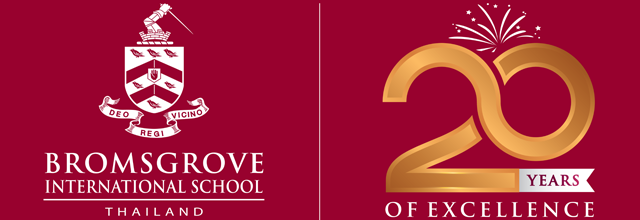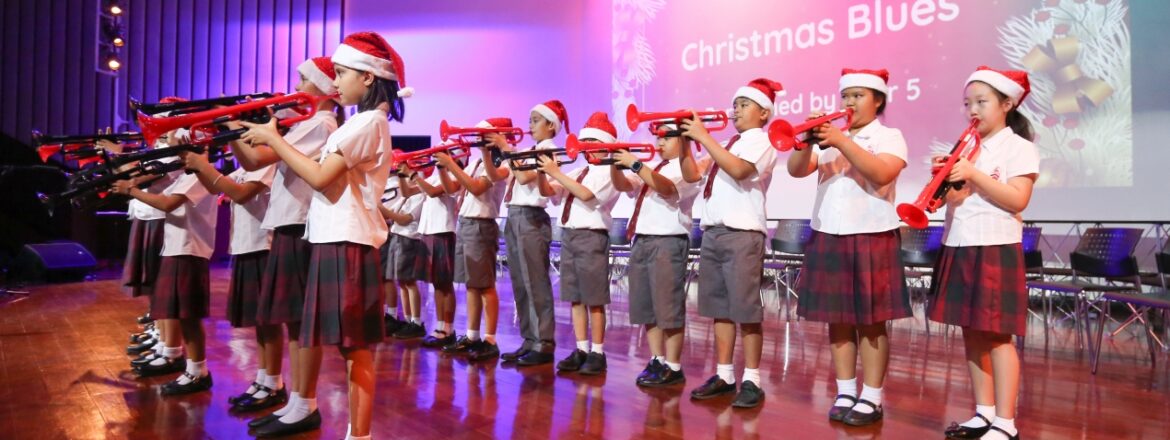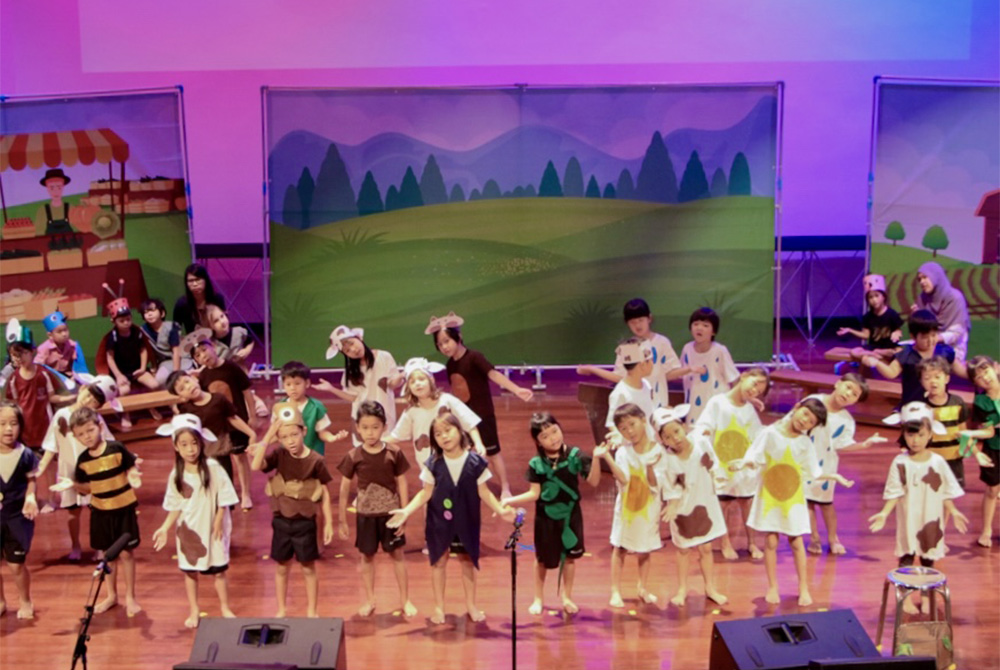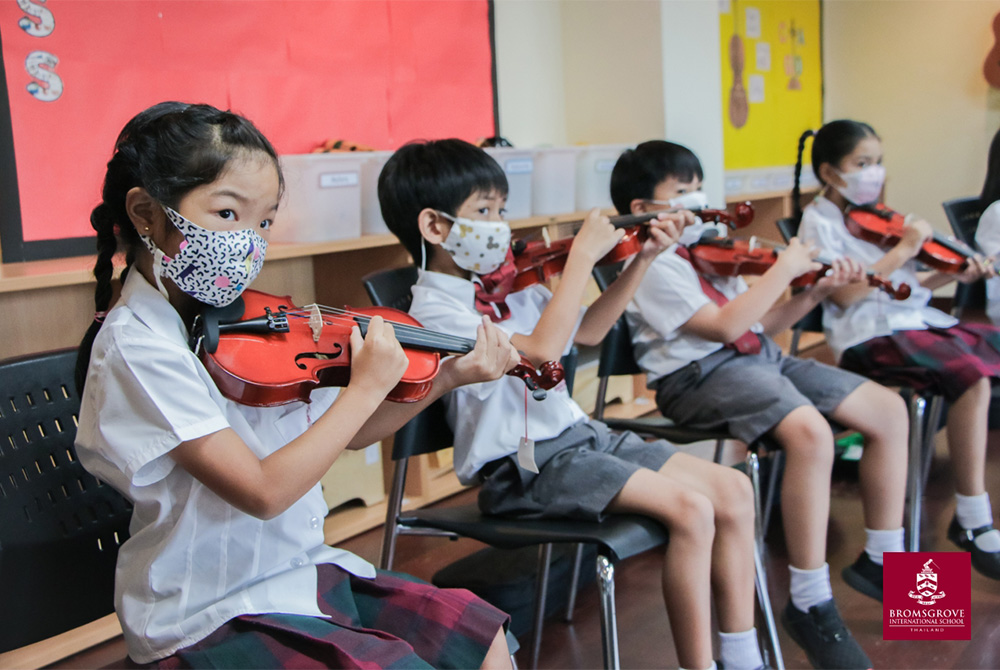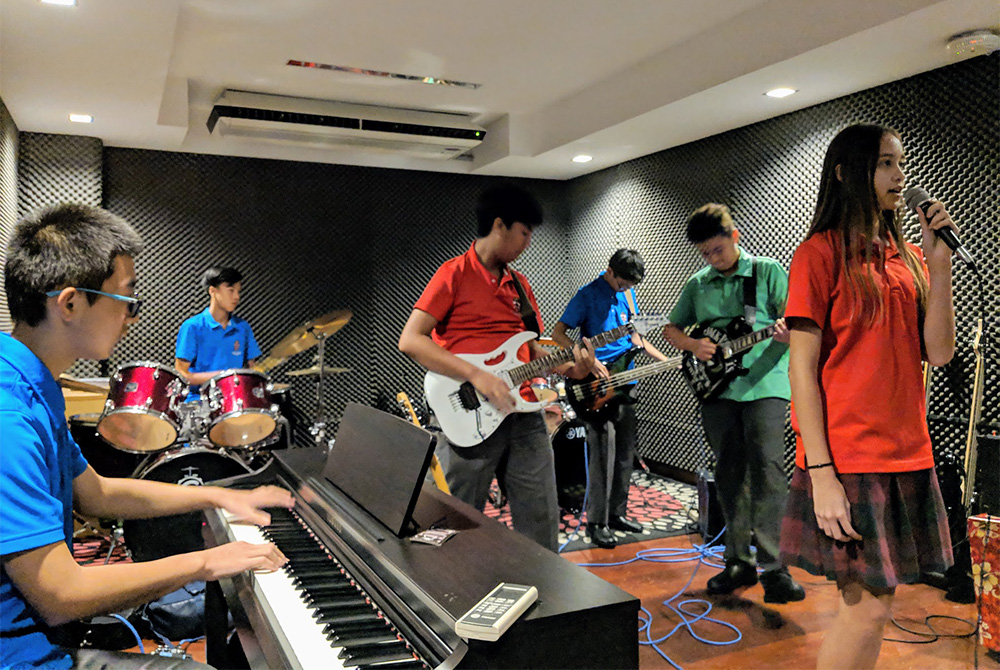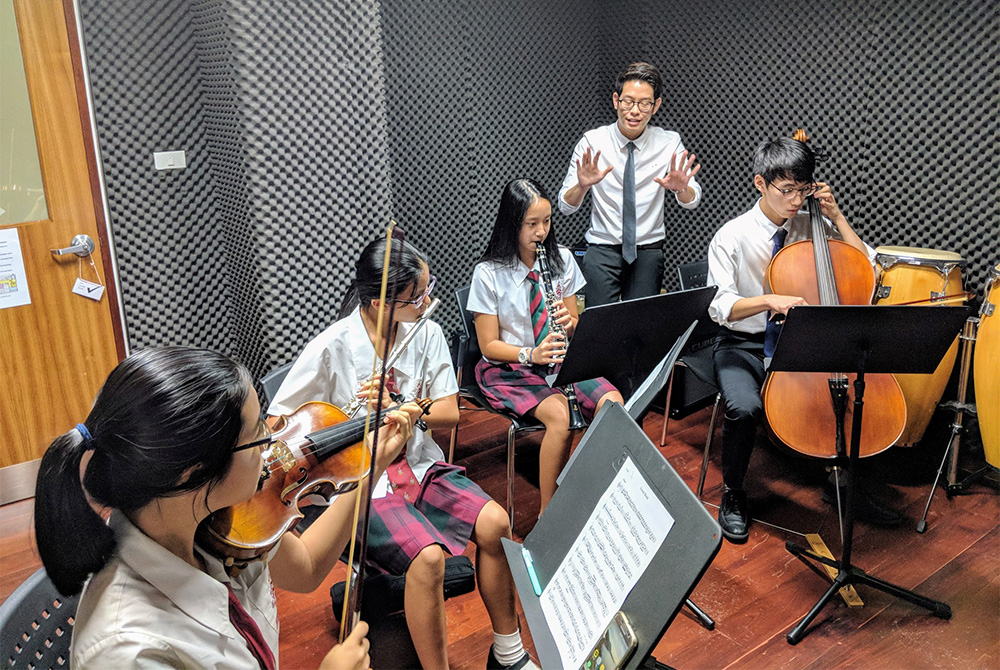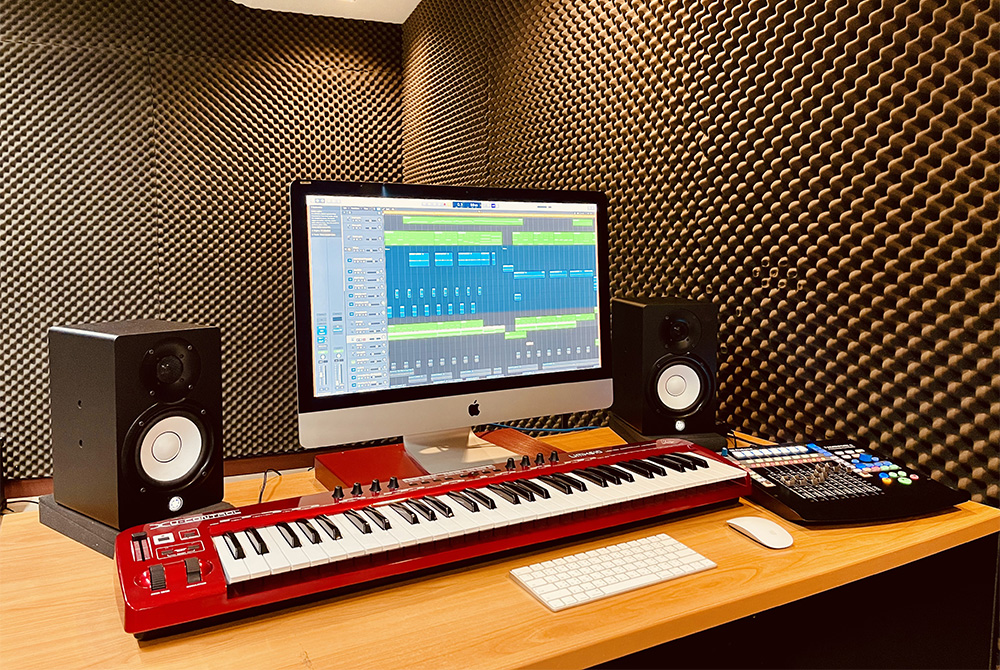Music and Music Production
We provide an inclusive, relevant and engaging approach to musical learning, which develops the musical potential in each and every one of our students.
Plato once said that music “is a more potent instrument than any other for education”. Recent research shows that studying music stimulates all areas of the brain, developing a child academically, emotionally, physically and spiritually.
Engaging children in music also helps them form a positive outlook about themselves and their capabilities. Playing a musical instrument develops a child’s self-confidence as it imparts a sense of control and mastery. Our music curriculum ensures that all of our students are equipped with the necessary skills and knowledge to participate in music as performers, composers and listeners, undertake further musical study, or pursue a career as a professional musician.

Musical Futures is an approach to the teaching and learning of music that promotes innovation, inclusion, diversity and lots and lots of music-making! It is based on a pedagogy that is driven by the musical culture of the participants, rather than being limited to a specific musical style or genre. It brings real-world approaches to learning music into schools and has recently been named as one of the HundrEd global innovations in education.
At Bromsgrove, we have been recognised as Champion School for our commitment to providing a student-centred, engaging and relevant music education. The Musical Futures International learning models are embedded across the whole school music curriculum and our teachers receive regular training and access to the newest approaches and resources.
Reception and Year 1 (ages 4 to 6)
In Reception and Year 1, we nurture our students’ musical development by offering broad musical experiences with specialist teachers from a young age. The musical learning and development is centred around four key areas: listening and responding to a wide range of genres; developing singing skills; moving and dancing to music; and exploring and playing with sounds, rhythms and musical instruments. Our Early Years children perform throughout the year, including a nativity at the end of Term 1 and a musical in Term 3.
Year 2 to Year 6 (ages 6 to 11)
Children in Years 2 to 6 have two music lessons and a singing assembly each week, led by our specialist music teachers. Through our unique orchestral programme, our students experience learning a range of wind, brass and string instruments and are provided with a free instrument each year. This programme encourages students to develop confidence in performance, foster social skills, enhance coordination and nurture team work as part of an ensemble. Many young students also choose to pursue their instrumental learning through our Music Academy and co-curricular programme.
Key Stage 3 (ages 11 to 14)
In the Secondary School, our students continue to develop their music ability through integrated performing, composing and listening in a range of contexts and styles. Our ‘Just Play’ approach allows students to build instrumental, musical and ensemble skills on a variety of instruments, through whole-class music making. Creative music skills are modelled, and when ready, our students go ‘in at the deep end’. They are asked to work in friendship groups and choose their own music, instruments and pathway to reach the end point – to perform together as a band.
Key Stage 4 (ages 14 -16)
Key Stage 5 (ages 16 -18)
The BTEC International Level 3 Subsidiary Diploma has been designed to provide learners with the opportunity to develop their skills and awareness of the global industry through either a music or music production pathway. Students will develop music or music production skills, learn to manage projects, gain self-analysis skills, and develop an appreciation of the music industry and their future role in it. The course includes two learning and teaching modules, 100% internally assessed through one mandatory and two optional assessment units.
The Music Pathway modules include performing in an ensemble, creating musical material and using musical styles. The Music Production Pathway modules include studio recording and creating musical material through production. The mandatory Music Industry Module asks students to present a project on the music industry that links developments and sector relationships related to their interests and specialisms. This might be in the form of a podcast documentary, a presentation to peers, an e-book or case studies on labels, bands or entrepreneurs.
